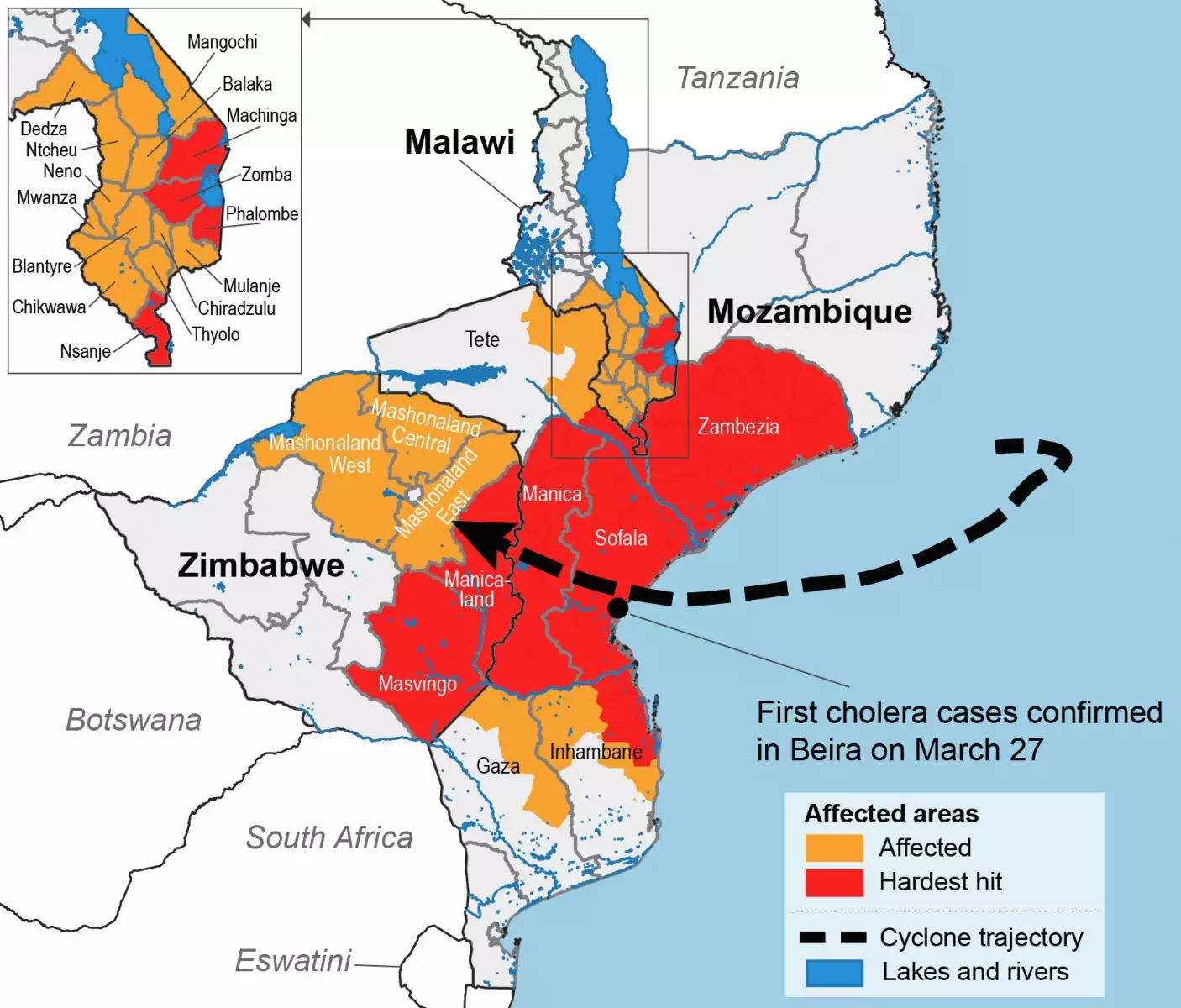
The port city of Beira in Mozambique was hit hardest, with many homes submerged and destroyed and healthcare infrastructure severely damaged. According to Médecins Sans Frontières, 90% of the area around Beira has been damaged, with roads and electricity cut off. The city’s water supply system has also been substantially damaged, forcing many people to drink from contaminated wells or stagnant water. As a result of the lack of access to clean water and increasingly squalid living conditions, the government announced the first recorded cases of cholera on March 27, in which five cholera cases were discovered in Munhava, one of the poorest neighborhoods of Beira. The number of cholera cases has reportedly jumped to at least 139 by March 29. The World Health Organization has warned of a “second disaster” if cholera spreads in the cyclone-affected region.
In southern Malawi, extremely heavy rains in lower Shire River districts of Chikwawa and Nsanje, has also been compounded by additional rains from Cyclone Idai. Although cholera has not yet been reported in this region of Malawi, the risk of cholera outbreak also remains a major concern.
Numerous international and local emergency teams have responded to the disaster, including Médecins Sans Frontières, International Rescue Committee, Save the Children, International Committee of the Red Cross and a team from Fondation Veolia.
